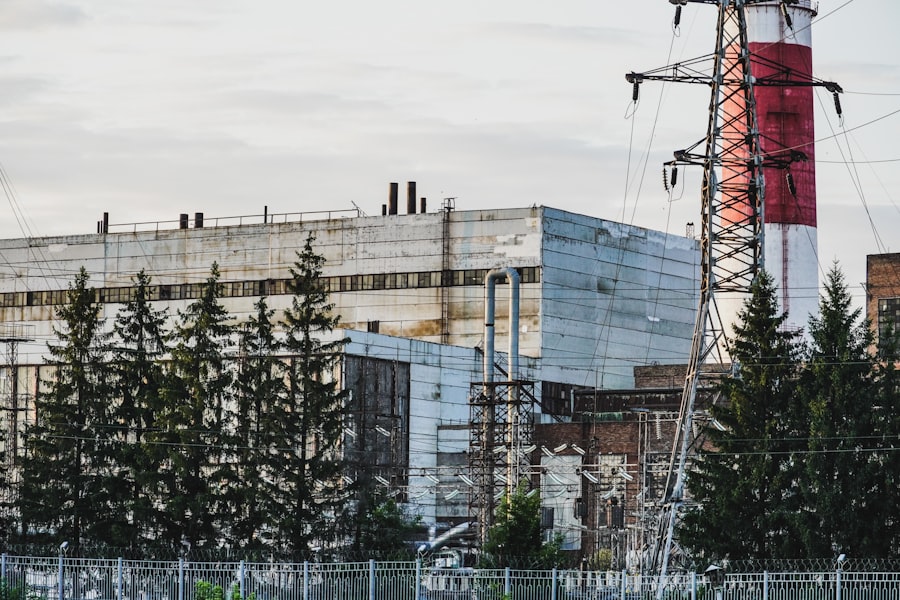Manufacturing careers are a vital component of the global economy, offering diverse job opportunities for individuals with various skills and interests. The manufacturing sector encompasses the production of goods through processes like machining, welding, assembly, and 3D printing. This industry is crucial in creating products used in daily life, spanning automotive, aerospace, electronics, and consumer goods sectors.
The manufacturing work environment is dynamic and fast-paced, providing opportunities for growth and advancement. Career options range from production line work to operations management and technology development, allowing individuals to make significant contributions to the industry. Manufacturing careers often involve working with cutting-edge technologies and innovative processes, making it an appealing field for those interested in problem-solving and creativity.
The industry is evolving to incorporate sustainable practices and eco-friendly technologies, addressing growing environmental concerns. As the manufacturing sector continues to adapt to new challenges and technological advancements, it remains a crucial part of the global workforce. These careers offer stability and opportunities for individuals with a wide range of skills and expertise, contributing to the ongoing development and innovation in various industries worldwide.
Key Takeaways
- Manufacturing careers offer a wide range of job opportunities for individuals with diverse skills and interests.
- The manufacturing industry faces challenges such as automation, globalization, and sustainability, which require innovative solutions.
- Skills and education in areas such as technology, engineering, and problem-solving are essential for success in manufacturing careers.
- Advancements in manufacturing, such as 3D printing and automation, are shaping the future of the industry and creating new job opportunities.
- Diversity and inclusion are important for the future of manufacturing, as a diverse workforce brings different perspectives and ideas to the table.
Job Opportunities in Manufacturing
Job Opportunities in Manufacturing
From entry-level positions on the production line to management roles and engineering positions, there are numerous career paths available for individuals with different levels of experience and expertise. Some of the most common job opportunities in manufacturing include production workers, machinists, quality control inspectors, industrial engineers, operations managers, and supply chain specialists.
Required Skills in Manufacturing
These roles require a diverse set of skills, including technical knowledge, problem-solving abilities, and strong communication and teamwork skills. In addition to traditional manufacturing roles, there is also a growing demand for professionals with expertise in advanced manufacturing technologies such as robotics, automation, and additive manufacturing.
Emerging Trends and Opportunities
As the industry continues to embrace digital transformation and Industry 4.0 initiatives, there is an increasing need for individuals with skills in data analysis, programming, and cybersecurity to support the integration of smart technologies into manufacturing processes. With the rise of e-commerce and global supply chains, there is also a growing demand for professionals in logistics and supply chain management to ensure efficient and timely delivery of products to customers. Overall, the job opportunities in manufacturing are diverse and offer a wide range of career paths for individuals with different backgrounds and interests.
Challenges in the Manufacturing Industry

While manufacturing careers offer numerous opportunities for growth and advancement, the industry also faces several challenges that impact its workforce and operations. One of the primary challenges in manufacturing is the rapid pace of technological advancements, which requires workers to continuously update their skills and knowledge to remain competitive in the job market. As automation and robotics become more prevalent in manufacturing processes, there is a growing concern about job displacement and the need for retraining programs to help workers transition into new roles.
Another challenge in the manufacturing industry is the increasing pressure to adopt sustainable and environmentally friendly practices. With growing concerns about climate change and environmental impact, manufacturers are under pressure to reduce their carbon footprint and implement green technologies in their production processes. This shift towards sustainability requires significant investments in new technologies and infrastructure, as well as changes in operational practices, which can pose challenges for manufacturers.
Furthermore, the global nature of the manufacturing industry presents challenges related to supply chain disruptions, trade regulations, and geopolitical tensions. The COVID-19 pandemic highlighted the vulnerabilities of global supply chains, leading to disruptions in production and distribution networks. Manufacturers are now faced with the challenge of building more resilient supply chains that can withstand unforeseen events and geopolitical uncertainties.
Overall, the manufacturing industry faces several challenges that require innovative solutions and strategic planning to ensure its continued growth and success.
Skills and Education Required for Manufacturing Careers
Manufacturing careers require a diverse set of skills and educational backgrounds to meet the demands of the industry. Technical skills such as machining, welding, and equipment operation are essential for roles on the production line, while problem-solving abilities and attention to detail are crucial for quality control inspectors and process improvement specialists. Additionally, strong communication and teamwork skills are important for collaboration across different departments and functions within a manufacturing organization.
In terms of education, there are various pathways to enter the manufacturing industry, including vocational training programs, technical certifications, associate degrees, and bachelor’s degrees in engineering or related fields. Vocational training programs provide hands-on experience and practical skills for entry-level positions in manufacturing, while technical certifications offer specialized training in areas such as welding, CNC machining, or industrial maintenance. For individuals interested in pursuing higher education, bachelor’s degrees in mechanical engineering, industrial engineering, or manufacturing technology can provide a strong foundation for advanced roles in manufacturing.
As the industry continues to embrace digital transformation and advanced technologies, there is also a growing demand for professionals with skills in data analysis, programming, and cybersecurity. Individuals with backgrounds in computer science, information technology, or data analytics can find opportunities in roles related to automation, robotics programming, and cybersecurity for manufacturing systems. Overall, manufacturing careers require a combination of technical skills, problem-solving abilities, and continuous learning to adapt to the evolving demands of the industry.
Advancements and Innovations in Manufacturing
The manufacturing industry is constantly evolving with advancements in technology and innovative processes that drive efficiency and productivity. One of the most significant advancements in manufacturing is the adoption of automation and robotics to streamline production processes and improve quality control. Automated systems can perform repetitive tasks with precision and consistency, reducing the risk of human error and increasing overall productivity.
Robotics are also being used for tasks that are hazardous or physically demanding for human workers, improving safety conditions in manufacturing facilities. Another major innovation in manufacturing is the integration of additive manufacturing technologies such as 3D printing. Additive manufacturing allows for the production of complex geometries and customized parts with reduced material waste compared to traditional subtractive methods.
This technology has revolutionized prototyping and small-batch production processes, enabling manufacturers to create intricate designs with greater flexibility and speed. In addition to advancements in automation and additive manufacturing, the industry is also embracing digital transformation through the implementation of smart technologies and data analytics. The Internet of Things (IoT) is being used to connect machines and equipment on the factory floor, enabling real-time monitoring of production processes and predictive maintenance capabilities.
Data analytics tools are also being utilized to optimize production schedules, identify areas for process improvement, and enhance overall operational efficiency. Overall, advancements in manufacturing are driving significant improvements in productivity, quality control, and sustainability. As the industry continues to innovate with new technologies and processes, there will be increasing opportunities for individuals with skills in automation, data analytics, and advanced manufacturing technologies.
Diversity and Inclusion in the Manufacturing Workforce

Breaking Down Barriers in Recruitment
Historically, the manufacturing industry has been male-dominated, but efforts are being made to promote diversity and inclusion by attracting more women and underrepresented groups into the workforce. Manufacturers are promoting diversity through targeted recruitment efforts that aim to attract individuals from diverse backgrounds into the industry. This includes partnering with educational institutions to provide opportunities for underrepresented groups to pursue careers in manufacturing through internships, scholarships, and mentorship programs.
Fostering an Inclusive Workplace Culture
In addition to recruitment efforts, manufacturers are also focusing on creating inclusive workplace cultures that support diversity through policies that promote equal opportunities for career advancement and professional development. This includes providing training on unconscious bias awareness, cultural competency, and inclusive leadership practices to ensure that all employees feel valued and supported in their roles.
The Benefits of Diversity and Inclusion
Overall, diversity and inclusion are essential for driving innovation and creativity within the manufacturing industry. By embracing diverse perspectives and experiences, manufacturers can better understand their customers’ needs and preferences while fostering a more inclusive work environment that attracts top talent from all backgrounds.
The Future of Manufacturing Careers
The future of manufacturing careers is filled with opportunities for growth and innovation as the industry continues to evolve with advancements in technology and processes. With increasing demand for sustainable practices and digital transformation initiatives, there will be a growing need for professionals with skills in automation, data analytics, additive manufacturing, and cybersecurity to support the integration of smart technologies into manufacturing processes. As manufacturers continue to address challenges related to technological advancements, sustainability practices, supply chain disruptions, diversity, and inclusion efforts will be crucial for building a strong workforce that can adapt to these changes.
By promoting diversity at all levels of the organization and creating inclusive work environments that support equal opportunities for career advancement, manufacturers can attract top talent from diverse backgrounds while fostering a culture of innovation and collaboration. Overall, manufacturing careers offer a dynamic and rewarding path for individuals with diverse skills and interests who are passionate about making a meaningful impact on the global economy. With ongoing advancements in technology and processes shaping the future of manufacturing careers, there will be increasing opportunities for individuals to contribute to the industry’s growth while building fulfilling careers that make a difference in the world.
If you are considering a career in manufacturing, it’s important to explore your options at 16 and 18. This article on full-time education provides valuable information on the different paths you can take after completing your compulsory education. Additionally, the article on further information offers insight into the various opportunities available to you as you transition into adulthood. Understanding these options can help you make informed decisions about your future in the manufacturing industry.
FAQs
What are the opportunities in the manufacturing industry?
The manufacturing industry offers a wide range of career opportunities, including roles in production, engineering, quality control, supply chain management, and research and development. There are also opportunities for advancement into management and leadership positions.
What are the challenges in the manufacturing industry?
Challenges in the manufacturing industry include technological advancements, global competition, supply chain disruptions, and the need for skilled labor. Additionally, environmental regulations and sustainability concerns are becoming increasingly important in the industry.
What skills are important for a career in manufacturing?
Important skills for a career in manufacturing include technical skills, problem-solving abilities, attention to detail, communication skills, and the ability to work in a team. Additionally, a strong understanding of manufacturing processes and technologies is essential.
What are the educational requirements for a career in manufacturing?
Educational requirements for a career in manufacturing vary depending on the specific role. Entry-level positions may require a high school diploma or equivalent, while more advanced roles may require a bachelor’s or master’s degree in engineering, business, or a related field. Vocational training and certifications can also be valuable in the industry.
What is the future outlook for careers in manufacturing?
The future outlook for careers in manufacturing is positive, with continued demand for skilled workers in the industry. Technological advancements, such as automation and 3D printing, are expected to create new opportunities, while the need for sustainable manufacturing practices will also drive growth in the industry.



